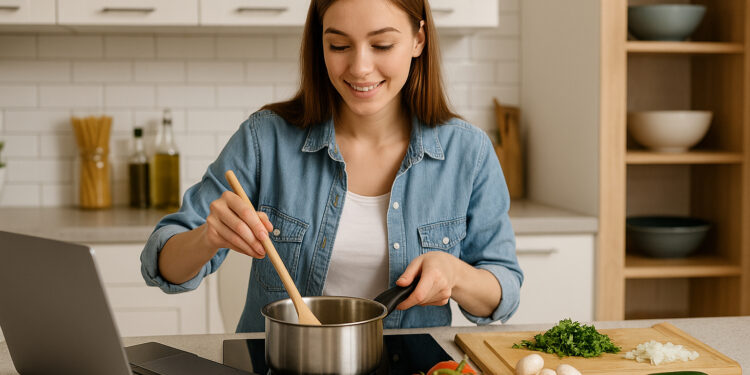Stepping into the kitchen for the first time can feel intimidating — but cooking doesn’t have to be complicated. With a few essential techniques and a little confidence, anyone can learn to create delicious meals. Whether you’re a student, a busy professional, or someone exploring a new hobby, mastering the basics will help you cook smarter, not harder.
Start with Simple Recipes
The best way to begin is by keeping it simple. Choose recipes with minimal ingredients and clear instructions — like stir-fries, pasta dishes, or sheet-pan dinners. As you gain confidence, gradually experiment with new techniques and flavors. Focus on learning one skill at a time, such as chopping vegetables or sautéing onions, before moving to more complex dishes.
Organize Before You Cook
Preparation is key. Read the entire recipe first, then gather all your ingredients and tools — this process, called mise an place, ensures a smoother cooking experience. Keep your workspace clean and organized to avoid mistakes or stress. Measuring ingredients ahead of time will also help you focus on the cooking itself rather than scrambling mid-recipe.
Learn Basic Knife Skills
Good knife skills make cooking faster, safer, and more enjoyable. Practice chopping, dicing, and slicing on vegetables like onions, carrots, or peppers. Always use a sharp knife — dull ones are actually more dangerous because they require more force. Learning the proper grip and cutting technique will instantly boost your kitchen confidence.
Taste and Adjust as You Go
Seasoning is what transforms good food into great food. Taste your dish throughout the cooking process and adjust salt, herbs, or spices accordingly. Remember, you can always add more — but you can’t take it away. Balancing flavors takes practice, but it’s the secret to developing your personal cooking style.
Keep Essentials on Hand
A well-stocked kitchen saves time and money. Keep staples like olive oil, salt, pepper, rice, pasta, canned tomatoes, and a few favorite spices. These basics form the foundation for countless quick and satisfying meals.
Conclusion
Cooking for beginners is all about confidence, patience, and practice. Start small, stay curious, and don’t be afraid to make mistakes — every burnt toast or overcooked noodle teaches you something new. With time, you’ll discover that cooking isn’t just a necessity; it’s one of life’s most rewarding skills.












